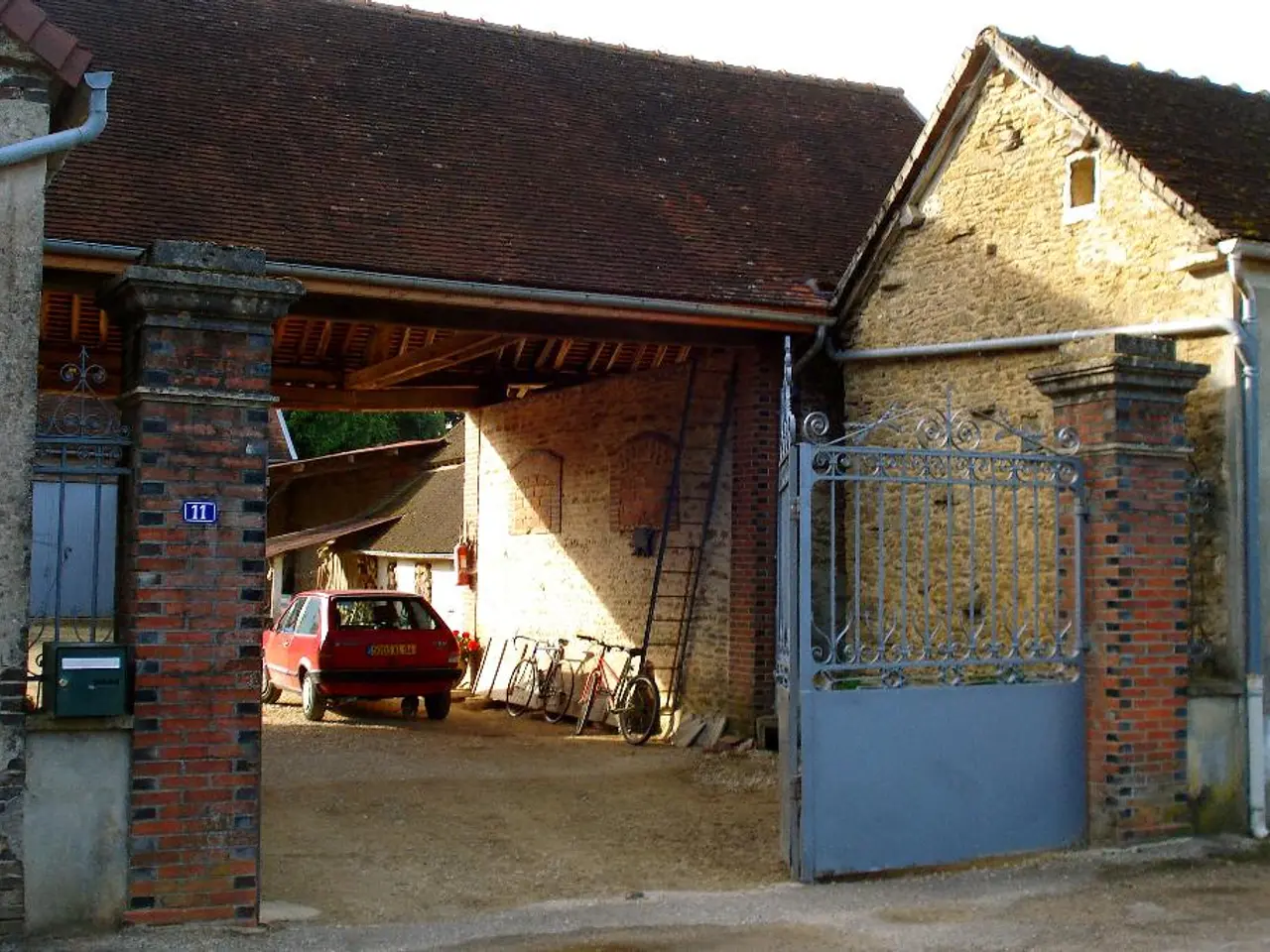Settlements in the West Bank, inhabited by settlers, are controversial due to their perceived encroachment on Palestinian territory and the ensuing conflict over land ownership.
In the complex and long-standing Israeli-Palestinian conflict, one of the most contentious issues remains the expansion of Israeli settlements in the occupied West Bank and other territories.
History
The construction of Israeli settlements began post-1967, following Israel's capture of the West Bank, Gaza Strip, East Jerusalem, the Golan Heights, and the Sinai Peninsula during the Six-Day War. Over time, settlements in Sinai were dismantled in 1982 and those in Gaza in 2005, leaving primarily West Bank settlements and some in East Jerusalem and the Golan Heights.
Current Status
As of early 2022, approximately half a million Israeli settlers reside in the West Bank, with the number continuing to grow. East Jerusalem and the Golan Heights are administered by Israel but lack international recognition as annexed territories.
Impact on Palestinians
The expansion of Israeli settlements has significant repercussions for Palestinians living in the West Bank. They face restrictions on freedom of movement, land appropriation, and periodic violence related to settlement expansion and military presence. These challenges threaten Palestinian statehood and self-determination.
International Legal Opinion
Most international bodies consider Israeli settlements in occupied Palestinian territories to be illegal under international law, specifically the Fourth Geneva Convention, which forbids an occupying power from transferring its population into occupied land. Israel, however, disputes this characterization, citing historical, security, and legal arguments.
Controversial Practices
Israeli settlers have forcibly displaced Palestinians from their homes, even though some families have lived on the land for generations. Thousands of homes have been demolished to make way for settlements, and more territory has been taken to build roads and checkpoints that restrict Palestinians' movement.
In addition to authorized settlements, there are Israeli outposts, which are established without government approval and are considered illegal by Israeli authorities. Since the Hamas-led attacks on 7 October 2023 and Israel's subsequent military bombardment of Gaza, more than 100 Israeli outposts have been established.
Lack of Reporting and Fear of Retaliation
Most Palestinian victims of settler violence do not report attacks due to a lack of trust in the Israeli system and a fear of retaliation by settlers or the authorities if they do. Of the 174 settler violence incidents studied by the UN, 109 were not reported to Israeli authorities.
UN Condemnation and Growing Israeli Opposition
The UN has repeatedly condemned Israeli settlements, stating that they are illegal under international law. There is also a growing movement of Israelis who oppose the expansion of settlements, particularly in the Gaza Strip.
Recent Incidents
The UN's latest report on Israeli settlements notes that in October 2024, there were 162 settler attacks on Palestinian olive harvesters, many of them in the presence of IDF soldiers. Vast areas used for farmland and grazing have been requisitioned for settlements.
In conclusion, the expansion of Israeli settlements in Palestinian territory remains a critical obstacle to peace in the Israeli-Palestinian conflict. The international community continues to view these settlements as illegal, while Israel disputes this characterization. The impact on Palestinians is significant, with restrictions on freedom of movement, land appropriation, and violence related to settlement expansion and military presence.
- The Israeli-Palestinian conflict, perpetuated by the controversial practices such as Israeli settlers forcibly displacing Palestinians and the expansion of settlements, has led to international sanctions and condemnation, particularly by the UN, due to its violation of the Fourth Geneva Convention.
- Amidst the growing wave of crime-and-justice issues in the general-news landscape, the violence related to the Israeli-Palestinian conflict, including settler attacks on Palestinian olive harvesters, remains a significant point of contention, with many victims refraining from reporting due to fear of retaliation.
- The war of ideologies between the Israeli government and their opposition, who condemn settlement expansion, is mirrored within Israel as well, with a growing movement of Israelis who oppose the expansion of settlements, particularly in the Gaza Strip, viewed as a critical hindrance to resolving the long-standing Israeli-Palestinian conflict and achieving peace.




